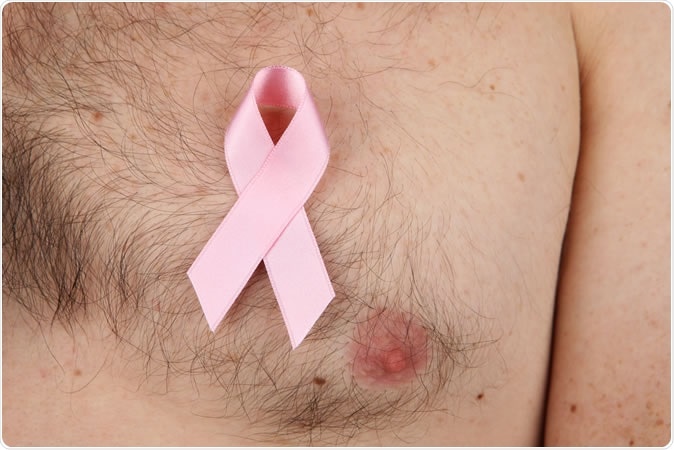October is Breast Cancer Awareness Month, an annual campaign to raise awareness about the potentially-fatal disease. Breast cancer is known as an illness that affects mostly women, but about 1 percent of all breast cancers affect men, too.
Male breast cancer (MBC) is a condition where males develop breast cancer. Men have breast tissue and they can also develop breast cancer. It occurs when the cells in the breast grow out of control and form a tumor. A tumor becomes malignant if the cells invade surrounding tissue and metastasize. Metastasis happens when the cancer spreads out to other parts of the body.
A new study reveals that treatment of male breast cancer has evolved and improved throughout the years. Also, they found that taking into consideration patient, tumor, and treatment-related factors are linked with a better survival rate. The new study sheds light on male breast cancer treatment and prognosis.

Image Credit: Hidesy / Shutterstock
Knowing more about male breast cancer
Although breast cancer shares certain characteristics and qualities in both genders, there are noteworthy differences. For instance, male breast cancer studies are very small and minimal. In fact, most information on male breast cancer are derived from studies on females.
Male and female breast cancer has differences, for instance, the incidence of invasive lobular cancer and in-situ disease is lower in males than in females. Also, male breast cancer manifests as a locally advanced disease, which commonly affects the nipples and skin. In males, the tumors are usually localized in the subareolar area, while in women, most tumors develop in the upper outer quadrant.
Understanding male breast cancer treatment and outcomes
Now, the new study, published in the journal CANCER, the peer-reviewed journal of the American Cancer Society, shows how MBC is treated and the researchers have identified factors tied to patient prognosis. MBC rates and incidence are increasing but there is still little body of knowledge and research focused on the illness.
The researchers studied information from the National Cancer Database on men, who were diagnosed with state I to III breast cancer from 2004 to 2014. The analysis revealed, that out of the 10,873 patients, with a median age of 64 years old. About 24 percent underwent breastconserving surgery, while 70 percent of the patients who had the surgery also underwent radiation.
Further, about 44 percent of the patients had chemotherapy and 62 percent patients who had tumors that express the estrogen receptor had hormonal therapy, with anti-estrogen therapy. The researchers also found that during the duration of the study, there was a marked increase in the total mastectomy, post-breast conservation radiation, and contralateral prophylactic mastectomy rates, including the rates of genomic testing on tumors and anti-estrogen therapy.
In terms of medications used to treat male breast cancer, they found that the most common drug used was Tamoxifen, which is an anti-estrogen medication.
Factors affecting survival rate
In MBC, the factors that is linked to worse overall survival include old age, multiple comorbidities, black race, undergoing total mastectomy, and high tumor grade and stage. The team also found that patients living in higher income areas, receiving chemotherapy, anti-estrogen therapy, and radiation, and having tumors that express the progesterone receptor, are all associated with better survival or prognosis.
"Our study highlights unique practice patterns and factors associated with prognosis in MBC, furthering our understanding of the treatment and prognosis of MBC. The racial, economic, and age-related health disparities we found could inform future eorts to target interventions to optimize outcomes in men with breast cancer,” Dr. Kathryn Ruddy at Mayo Clinic, study co-author, said in a statement.
Journal reference:
Yadav, S., Karam, D., Riaz, I., Durani, U., Duma, N., Giridhar, K., Hieken, T., Boughey, J., Mutter, R., Hawse, J., Jimenez, R., Couch, F., Leon Ferre, R., and Ruddy, Kathryn. (2019). Male breast cancer in the United States: Treatment patterns and prognostic factors in the twenty-rst Century. CANCER. http://doi.wiley.com/10.1002/cncr.32472